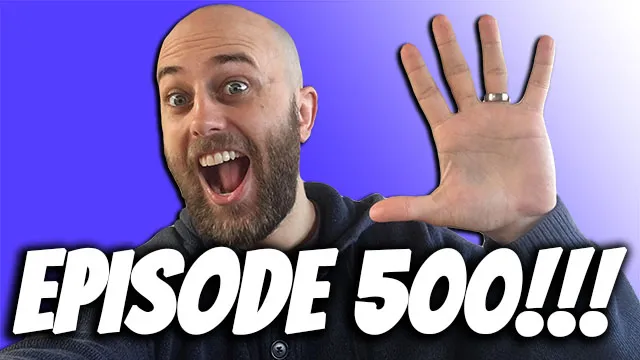AE 536 – My Country: Is Australian English Dying?
Learn Australian English in this My Country episode of the Aussie English Podcast where I answer the question, is Australian English dying?
AE 536 – My Country: Is American English Killing Australian English?
G’day, guys! What’s going on?
I just stumbled upon this article online and thought it was an interesting one as I had been thinking about this recently.
Anyway, the article was on macquariedictionary.com.au. If you guys want an Australian dictionary, if you are learning Australian English, this is a great website to check out, they have a lot of Australian specific content
Anyway, yeah, so I was on this site found this article ”Our Chief Editor on the Influence of Other English’s on Australian English”. The Daily Telegraph published an article discussing the rise in Aussie kids picking up U.S slang and pronunciation from games and streaming services among other examples that pointed out, more kids are choosing to say Z instead of Z for the last letter of the alphabet Australia we usually say Z, Americans would say Z, at least we’ll see what happens in the future, huh?
They pronounce, I won’t do this correctly, they pronounced ‘offence’ and ‘defence’…wait a second, ‘Offence’ and ‘defence’ with the emphasis on the first syllable. ‘Offence/defence’. I was practicing these before because I was like “what? Americans say them differently?’ That’s why I was confused. So, they’re putting the emphasis on the wrong syllable there, offence or offence instead of offence and changing the U sound in words such as ‘due’, ‘duplicate’ and ‘attitude’. Now, that is a big one. That is a big one that Americans do that. We don’t do so, we do something that’s called
Assimilation where you have the sound, the D sound, the T sound, all the sounds before the U sound, the U modifies the sound before it, right? So, instead of ‘due’ and ‘duplicate’, ‘attitude’, I would say ‘due’, ‘duplicate’ and ‘attitude’, right?
So, that’s an interesting one. Also taking over our trend in your words from YouTube stars such as ‘tea’ for scandalous gossip. Never heard that.
‘Lit’ to describe something amazing. I think I have heard Americans say it, ‘That’s really lit!’. Or, ‘shade’ to trash someone. While ‘bathroom’ has largely replaced ‘toilet’, and ‘butt’ is preferred to ‘bum’.
How can these kids be doing this to us?
Here in Australia we have always taken up words and expressions from other English-speaking parts of the world. Now, this is true. I do this all the time and to be honest sometimes I misspell words, right?
So, in American English, they’ll spell words say ending in -ISE in British and Australian English they’ll spell it with a Z, -IZE. They’ll write words like centre, instead of RE, they’ll write ER.
Sometimes I make those mistakes and the problem I think I have is that all the programs on the computers tend to use American English as default, too. And so, I always have to go through and try and correct all of them
So, there’s no denying that US English has become the greatest overseas influence on Australian English and probably all other forms of English probably since World War II that influence has grown exponentially in recent years first with films and TV and then the internet, social media, YouTube and computer games and I hadn’t really thought about the effect of computer games on changing English and streaming stuff live and, I guess, that’s because that’s not part of what I do. I don’t really watch that kind of content or play many computer games. But I know that kids these days watch a lot of computer games being played online, they watch a lot of streamers online and I guess a lot of them are American.
So, that’s crazy. So, the U.S. is being exposed to Australian English as well through our films and TV and the internet think “selfie” and “budgie smugglers”. Never knew that ‘selfie’ was an Australian word, though, it makes sense because we have a lot of -IE words, but there is obviously a huge discrepancy between the amount of US material that we are exposed to and the amount of Australian content that Americans see.
That’s true, although, it sometimes seems that Australians especially the younger demographic are unquestionably adopting US English. There is actually some selectiveness going on. That’s interesting. We still say thongs for the things that put on our feet, right? Instead of flip-flops
We go up to the street to buy a BBQ ‘chook’. That’s a chicken, right? You’ll buy a chook. We go to the ‘footy’ and we take an ‘esky’, a cooler, to the football and we have ‘bucks parties’. Yeah, I didn’t even know what you call them, bachelor party or something?
In American English, I’ve always thought that was a common one everyone uses and we still have ‘lounge rooms’ and drive ‘utes’ and light the barbie up. We’re still ‘bogans’ and ‘bludgers’ and ‘dags’. We still ‘take sickies’. That’s like not going to work because you’ve called in and said you were sick. So, you’ve taken a sick day and a sick day is called a ‘sickie’ and if the other kids muck up they do something wrong. We might ‘dob on’ them. That’s to tell the teacher in an Australian accent there.
So yeah, that’s pretty, it’s an interesting article and The Daily Telegraph. Also had it here and they showed a video of these Australian kids using a lot of American words for things like cookie instead of biscuit and tomato instead of tomato and so, it is interesting and they were also mentioning how much YouTube and Netflix is affecting our children because although the TV in Australia, and probably in all other countries as well, tends to have quotas on how much foreign content can be on the TV especially for children for obvious reasons, right? They don’t want children growing up watching foreign dialects because it would you know, undoubtedly, cause the native dialect to disappear and
So, they were saying that while TV has local content rules that can help or the Aussie accent and keep it alive, the U.S. lingo’s influence on how young Australians speak and sound is unlimited online. So, kids are watching heaps of Netflix and YouTube and the bulk of the content on there is American.
Anyway, I thought I would talk a little bit about the history of the Australian accent, Australian English, right? Because it is a kind of cool history. We are a colony of migrants or immigrants. A lot of people that came from different parts of England originally, and I think Scotland and Ireland, and then many other places in the world. But the first people to come to Australia obviously brought their accents, right? And they were all living in very small communities in Australia, but with lots of different accents going on. And another part of it was the fact that the majority of them were convicts. They were criminals. So, they weren’t upper class British folk worried about maintaining, you know, their accents. And so, I think this is why Australia uses a heap of slang, why we are very anti the class-based system. We like to call people mate.
Anyway, check this out.
The earliest form of Australian English was spoken by children of the colonists in early New South Wales. That’s the state that they colonized first. This first generation of native-born children, so, the children born in Australia, created a new dialect that was to become the language of the nation. So, that’s really cool because the Australian-born children that were born in this new colony were exposed to a wide range of dialects, a wide range of slang, a wide range of accents from all over the British Isles, Island and southeast England, and they obviously mixed it together. Right? Because you have these children all hanging out together, all learning together, all growing up together, so they’re going to, you know, sound the same, they’re going to… they’ll be affected by their parents initially you would imagine, but once they start spending time together as you’ll see when foreigners come to places like Australia and raise their children here and the children go to school within a year they have an Australian accent, right? Depending on their age.
So, the native-born children in the colony created the new dialect from the speech they heard around them and with it expressed peer solidarity, even when new settlers arrived. The new dialect was strong enough to blunt other patterns of speech.
So, there you go! Pretty interesting story about the Australian accent and what’s going on with the influence of other foreign dialects of English, particularly American English, so is Australian English going to die? Well, eventually, maybe a hundred, a thousand years from now, but I think we’re definitely going to hold on to our identity, our slang and the majority of our accent, you know. We may say the odd word like an American if we see a lot of it on TV, but I’m not worried about Australian English dying out anytime soon
Anyway, guys. I’m Pete from the Aussie English podcast, a podcast that I release English learning content for anyone interested in Australian English, if you want to check that out, go to theaussieenglishpodcast.com and aside from that, I hope you have a ripper of a day and I see you in the next video. Peace!
Download Transcript + MP3
Here's what you get when you sign up!
- Read while you listen using the Premium Podcast player.
- Understand every word in every episode.
- Download all PDF transcripts and MP3s for 600+ episodes.
- Get access to bonus member-only episodes.












Responses